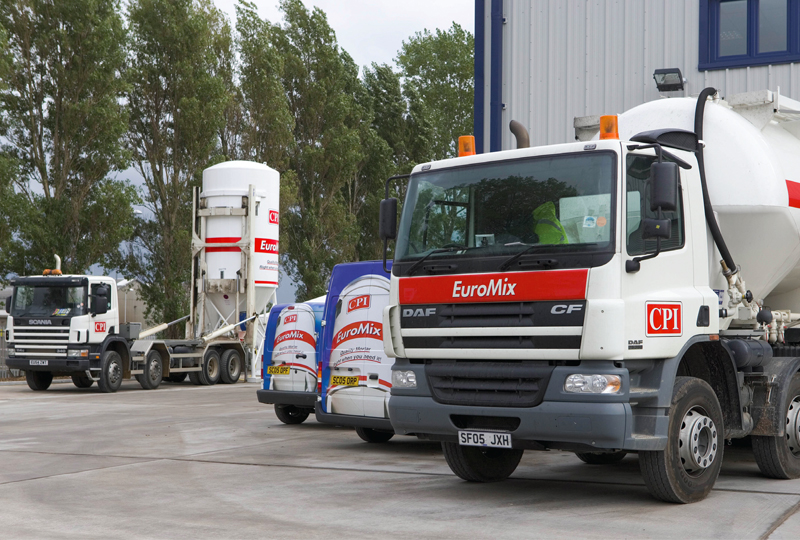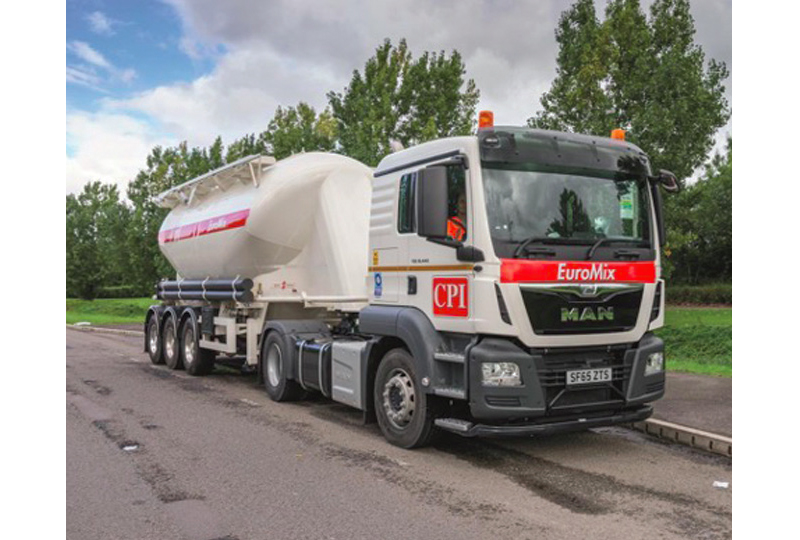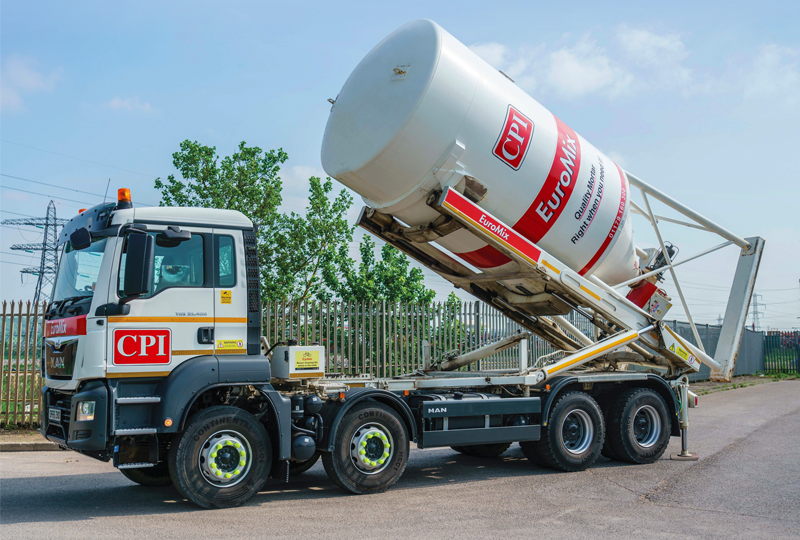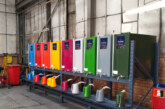
CPI Euromix is determined to be sustainable in every element of its business, including fuel, so it is switching to HVO. CVW takes a look at what is involved.
As one of the UK’s major suppliers of dry silo mortar, CPI Euromix has a nationwide network of nine factories supplying building sites all over the country. The material itself is like ready-mixed concrete without the need for just-in-time deliveries as it can be stored on site until it is needed yet it has all the benefits of factory production, such as consistent quality and colour.
The company plans to cut its carbon footprint by switching its whole fleet of wagons to the diesel alternative, hydrotreated vegetable oil (HVO), starting with a pilot scheme at its plant in Northfleet, Kent, where it has six trucks.
“We decided to switch to HVO because it’s proven to be a cleaner fuel option for both on and off-road commercial fleets,” explains Stuart Russell, commercial manager at CPI.
“HVO is compliant with EN15940 standards, which govern cleaner transport fuel for use in road vehicles, and it offers an immediate reduction in CO2 emissions without requiring changes to engine infrastructure or machinery.
“What we really appreciate about HVO is that unlike conventional biodiesel, it uses hydrogen as a catalyst instead of methanol, which makes it cleaner burning and ensures a longer shelf life.”
HVO is a renewable and sustainable alternative to fossil-based fuels such as petrol or diesel. HVO is produced by refining and hydrogenating vegetable oils like rapeseed, palm, or soybean oil, resulting in a clear and odourless liquid that can be used as a drop-in replacement for diesel or petrol.

Higher cetane rating
There are several benefits to using HVO over traditional fossil-based fuels. It produces fewer greenhouse gas emissions, including CO2 , than fossil fuels. This is because the carbon in HVO comes from plants that have absorbed CO2 from the atmosphere during their growth, resulting in a lower net emissions output. It also has a higher cetane rating than diesel (more than 70 compared to 51), which means it burns more cleanly and efficiently in diesel engines, leading to improved performance and reduced engine wear. HVO is sustainable because it is manufactured using renewable vegetable oils and can even be produced from waste materials such as used cooking oil, which reduces reliance on fossil fuels and promotes a circular economy.
“Our vehicle drivers are delighted to be trialling this excellent scheme,” says Stuart. “Employee buy-in is essential to us establishing our reputation as an environmentally responsible manufacturer, so we’re very glad that they’re cooperating with such enthusiasm.”
Environmentally conscious
Stuart points out that the company’s move towards running its fleet on HVO rather than diesel is part of its overall sustainability strategy.
“As a company, we are committed to sustainable business practices, and each initiative we undertake is guided by principles aligned to CPI’s ISO 14001 environmental management accreditation.”
ISO 14001 is an international standard that prescribes a structured approach to environmental protection, enabling organisations of all sizes to develop and implement policies for environmentally responsible and sustainable practices. So Stuart has other examples in which the company has switched to energy sources with less emissions.
“Last year we introduced an electric-powered forklift to our Rotherham bagging plant, coupled with CPI’s zero-carbon electricity source,” he says. “The shift to a battery-powered vehicle resulted in a healthy reduction in CO2 and diesel particulate emissions.
“We’ve also invested in a solar arrays initiative that presents an opportunity for partial power self-sufficiency in the months and years to come. The solar arrays plan is currently being implemented at various locations across CPI’s production sites, and we’ve already taken action at our Harlow, Manchester, Bilston, and Bristol factories.
We anticipate that each installation will produce up to 80 mW of energy each year, equating to a saving of more than 6% on the company’s annual power consumption.”

Swift wins
HVO looks likely to become more popular as companies seek lower emissions. CPI Euromix is not the only UK company seeking to reduce its carbon footprint and, on the face of it, running a fleet on HVO looks like a swifter win with less investment required than installing solar power.









